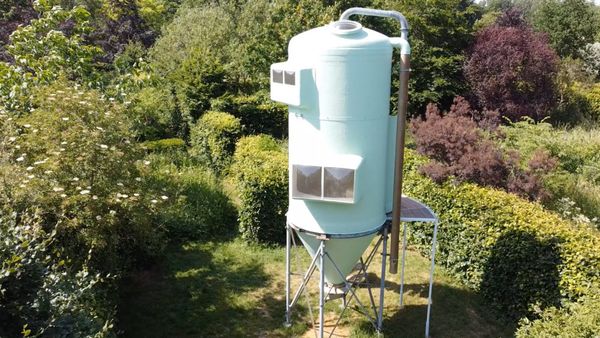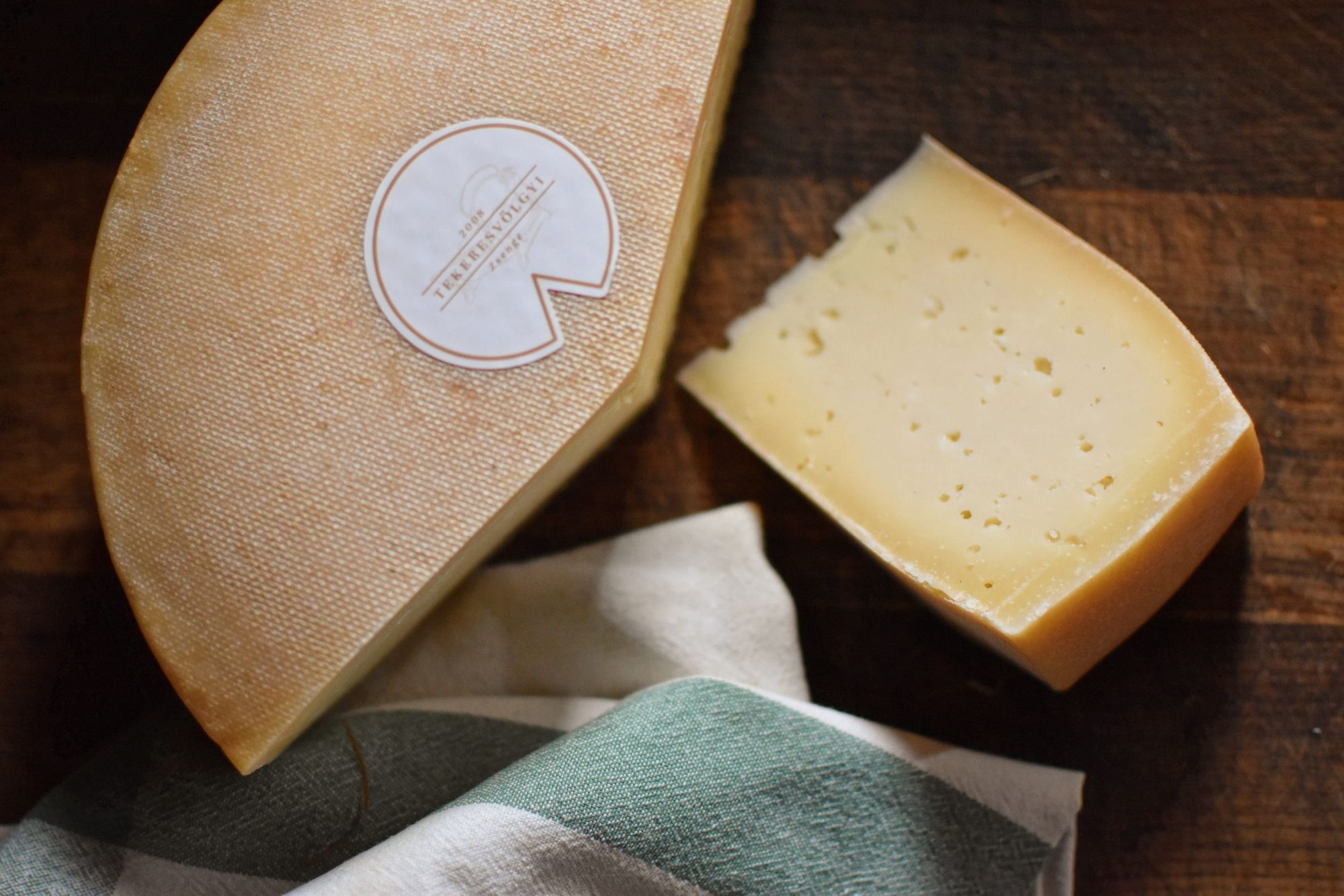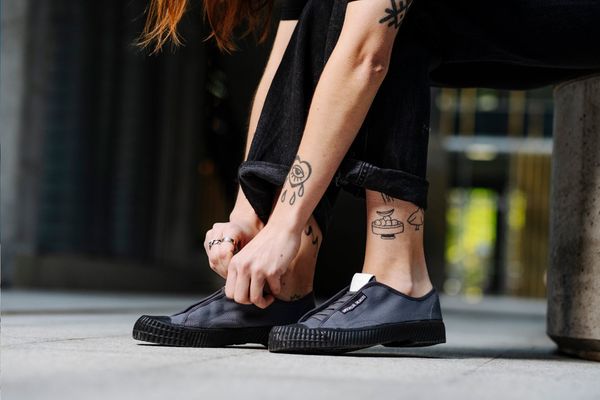Cheese factory, family farm, rural feel. These are the first words that pop into our mind when we think of Tekeresvölgyi Családi Birtok (Tekeresvölgy Family Farm), founded in 2008 by Csaba Kovács and his family in Nemesvámos. We talked to Zsófi Kovács about the family business.
Since 2008, your products have been prepared as primary- or small-scale producers, with family collaboration. Can you tell us a little about the early days?
In 2008, we started experimenting on our own, without any particular concept, and we saw the potential. First, we made yogurt, then cheese. We have also developed a lot in just one year, opening up our interests in this direction. That’s when we decided to start doing it as a business. When the first farmers’ markets sprang up around Lake Balaton, the Tihany Market (now Tihanyi Piac Placc) and the Liliomkert Market in Káptalantóti were launched, which gave us further opportunities to sell our products. Essentially, this is what started us off and then we have grown organically over the years. We saw the demand from our customers and started to grow both in product range and volume. A few years later, our accommodation developed in parallel. And four or five years ago, we started processing meat from our own pigs and occasionally from cattle.
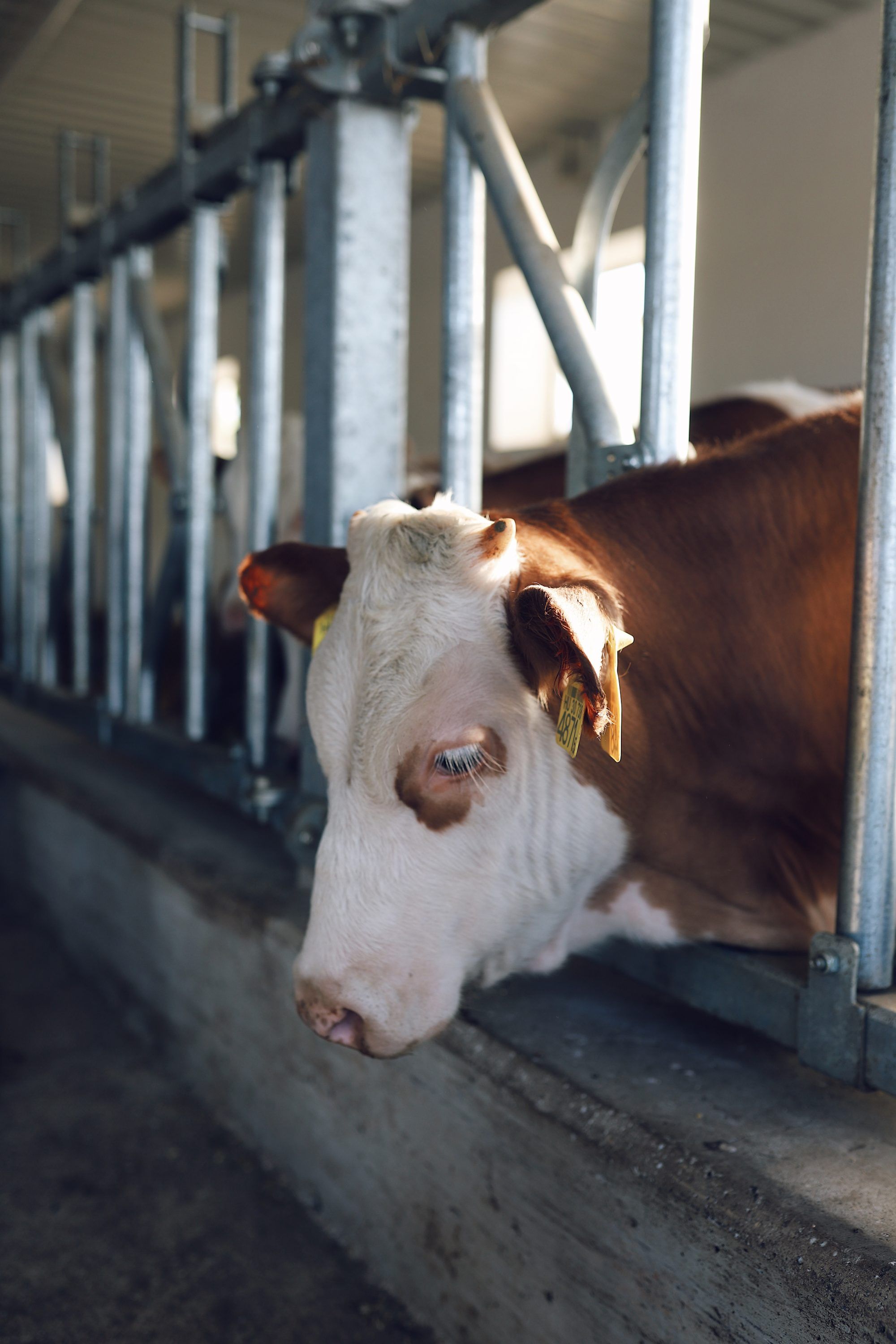
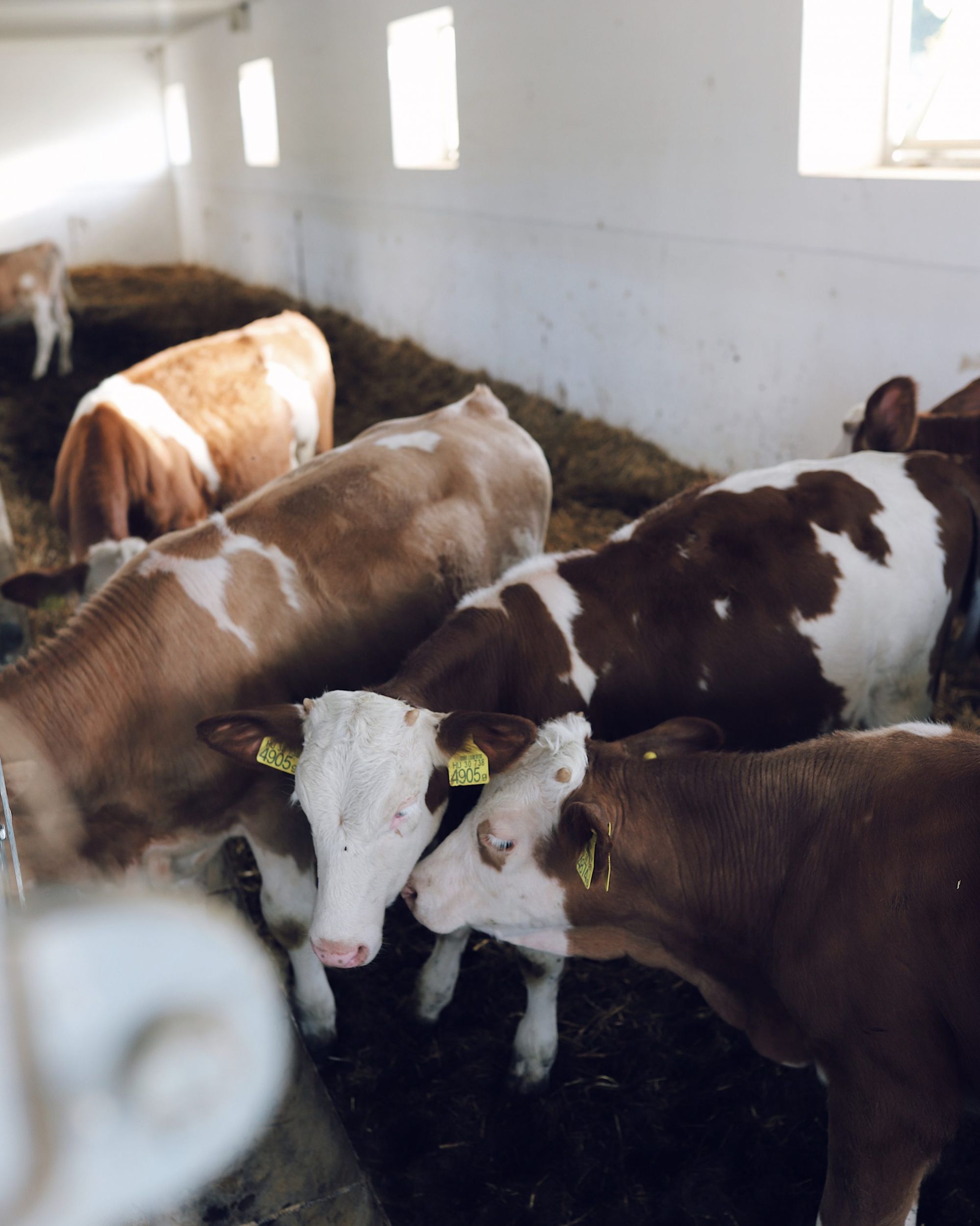
How should we imagine a family business—everyone is doing their part?
Three of us in the family are working in the business right now: my father, mother, and I. With my little girl, I’m more of a full-time mum at the moment, but I’m also working, trying to do my bit as much as possible. We also have 12 employees. We are now working and producing in quantities for which our personal presence is not enough, neither in terms of the animals, nor in the cheese-making, nor in the sales. Today, running a business requires complex teamwork, and we also have to pay attention to how the company is organized to make sure it functions properly, as a good system.
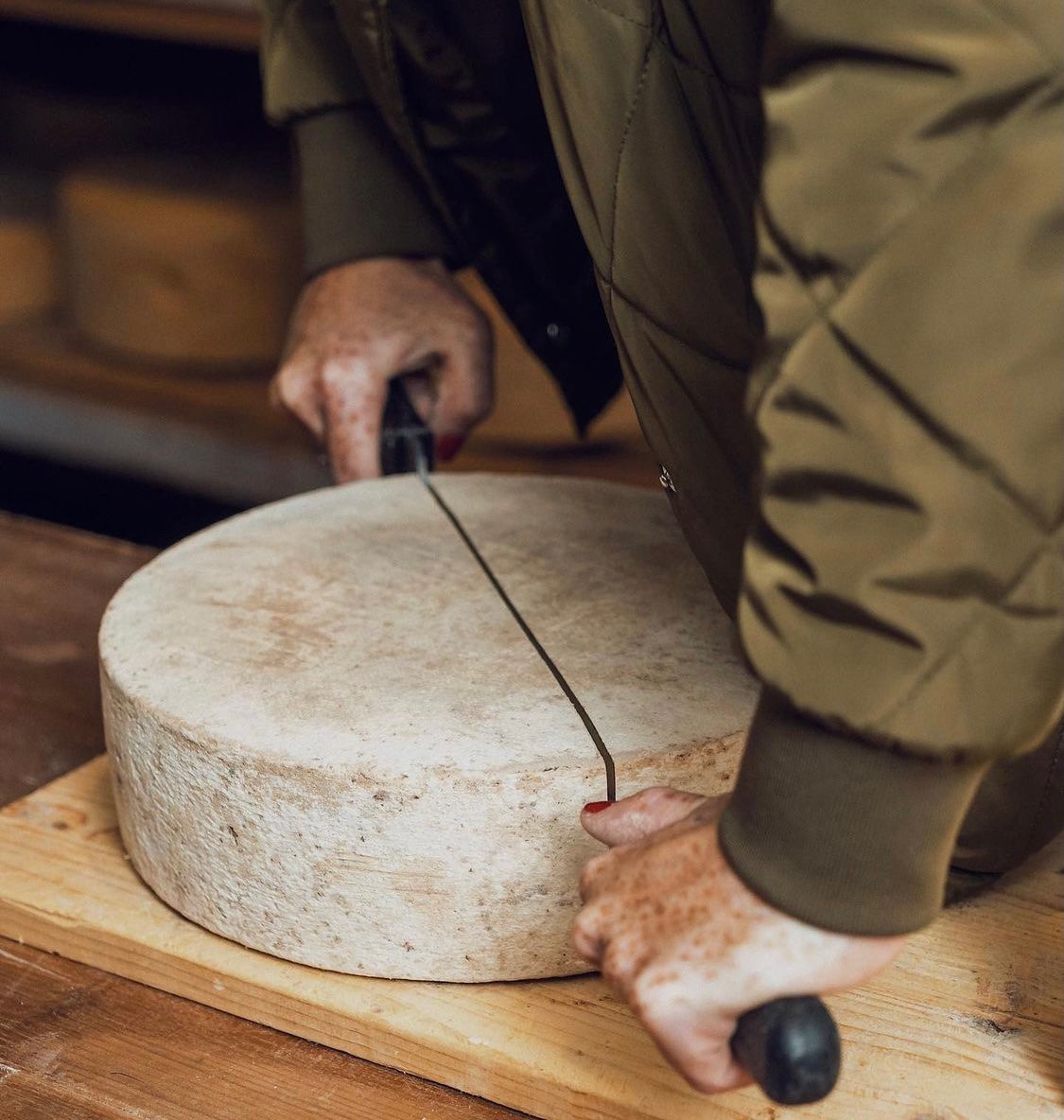
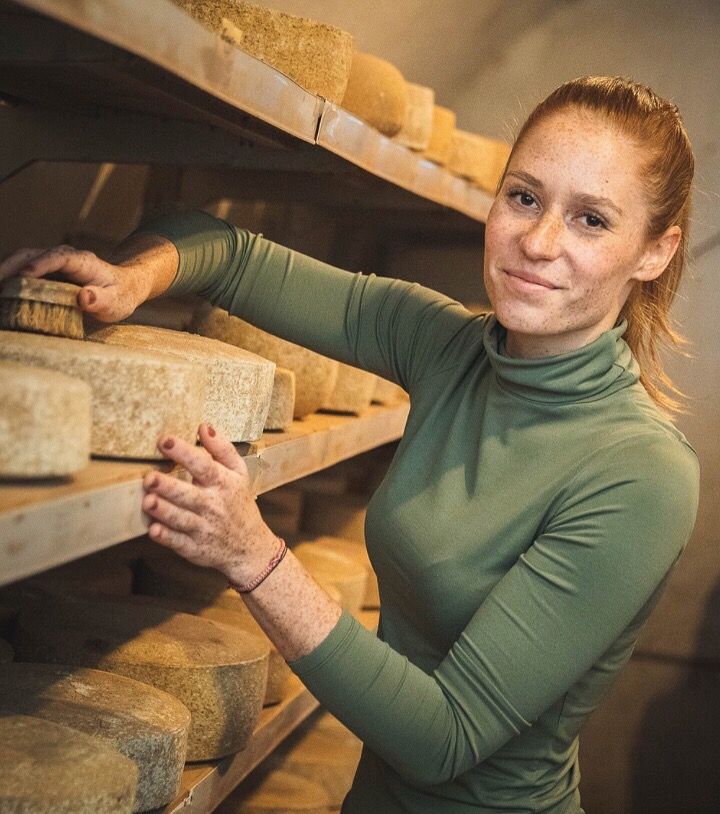
How important is it for your customers to have your personal presence and direct contact with you?
We consider it very important, and to this day, wherever we sell, here on the property or at the markets (in Tihany on Saturdays, in Káptalantóti on Sundays), there is at least one person from the family present to participate in the sale and to keep in touch with the customers. We have noticed that shopping at a farmer’s shop, as opposed to a supermarket, is also a way for people to relax and exchange ideas. Just like in the old days at the markets, people discuss the ins and outs of everyday life—what we’ve been up to this week, what’s been happening on the farm. People like to hear that first hand from us.
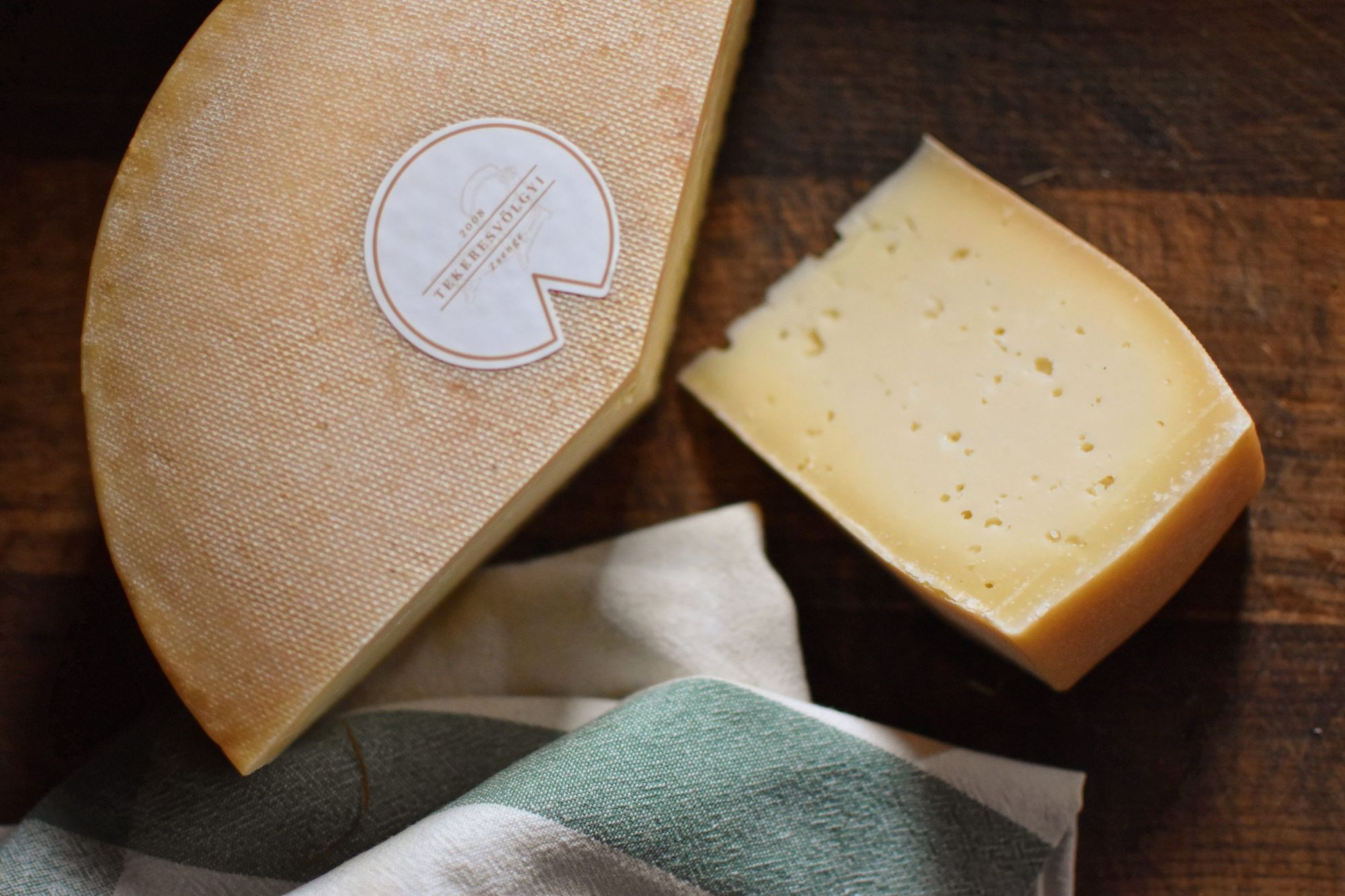
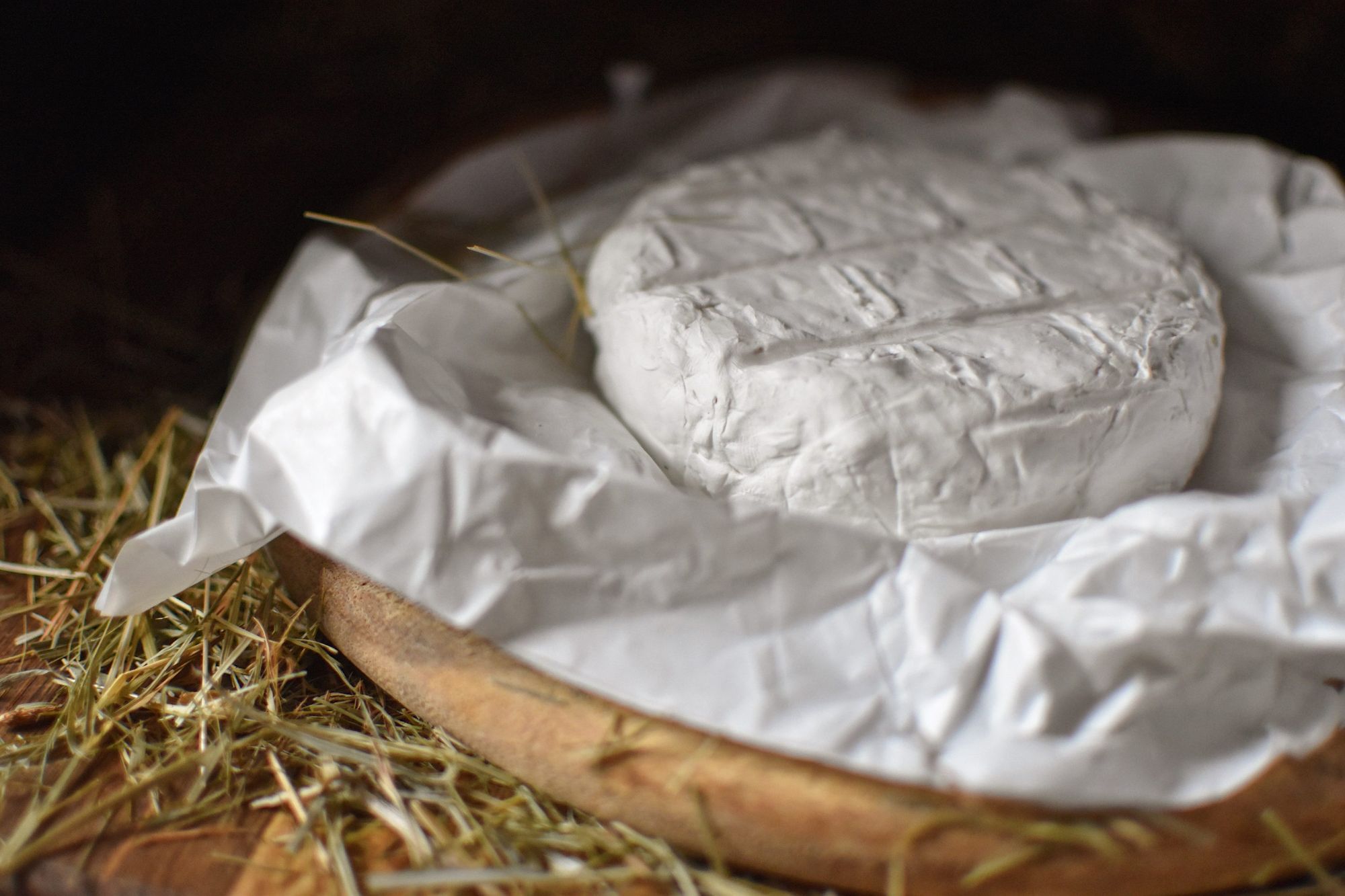

You learned from Hungarian master cheesemakers, then foreign “field trips” came next. How can you really get to know the secrets of cheese making?
We are maximalists. If we are interested in something, we want to expand our knowledge as much as possible. The science of cheese-making is a complex and complicated thing, a never-ending story that we are still learning. Whether we look at it from a technological or a ripening perspective, these processes can be very intricate and ramifying. That’s why it was important to decide from the start what style we wanted to represent in the world of cheese. In our case, it was the Swiss style.
“The Appenzeller type of mountain cheese was and still is the model and motivation for our semi-hard ripened cheeses. I think it is important for a cheese workshop to develop its own style. Accordingly, we produce our cheeses based on the Swiss model, but with our own recipes, technology and maturing times and methods.”
What sort of products are you making? Can you tell us a bit of how your product range has evolved?
Over the years, we’ve noticed that customers are always looking for something new in addition to the familiar flavors. We try to keep up with this, and we’ve also seen that when people trust a particular local producer, they like to buy as many things as possible from them on the spot. For the future, it’s a big task to keep the current range and quantity of products, because, at the moment, we are making cottage cheese, butter, sour cream, yogurts with different flavors, and cheeses with diverse technologies and seasonings.
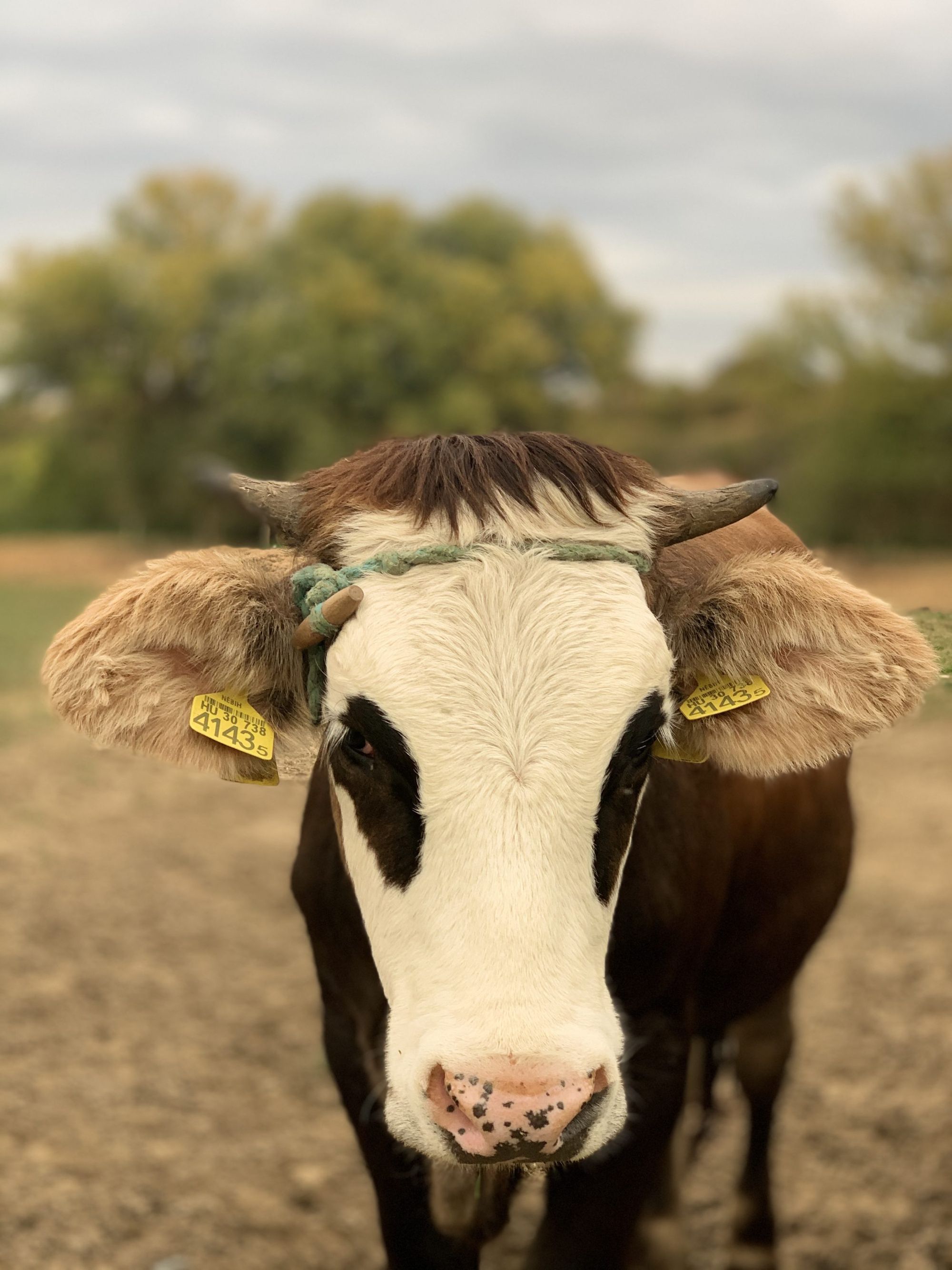
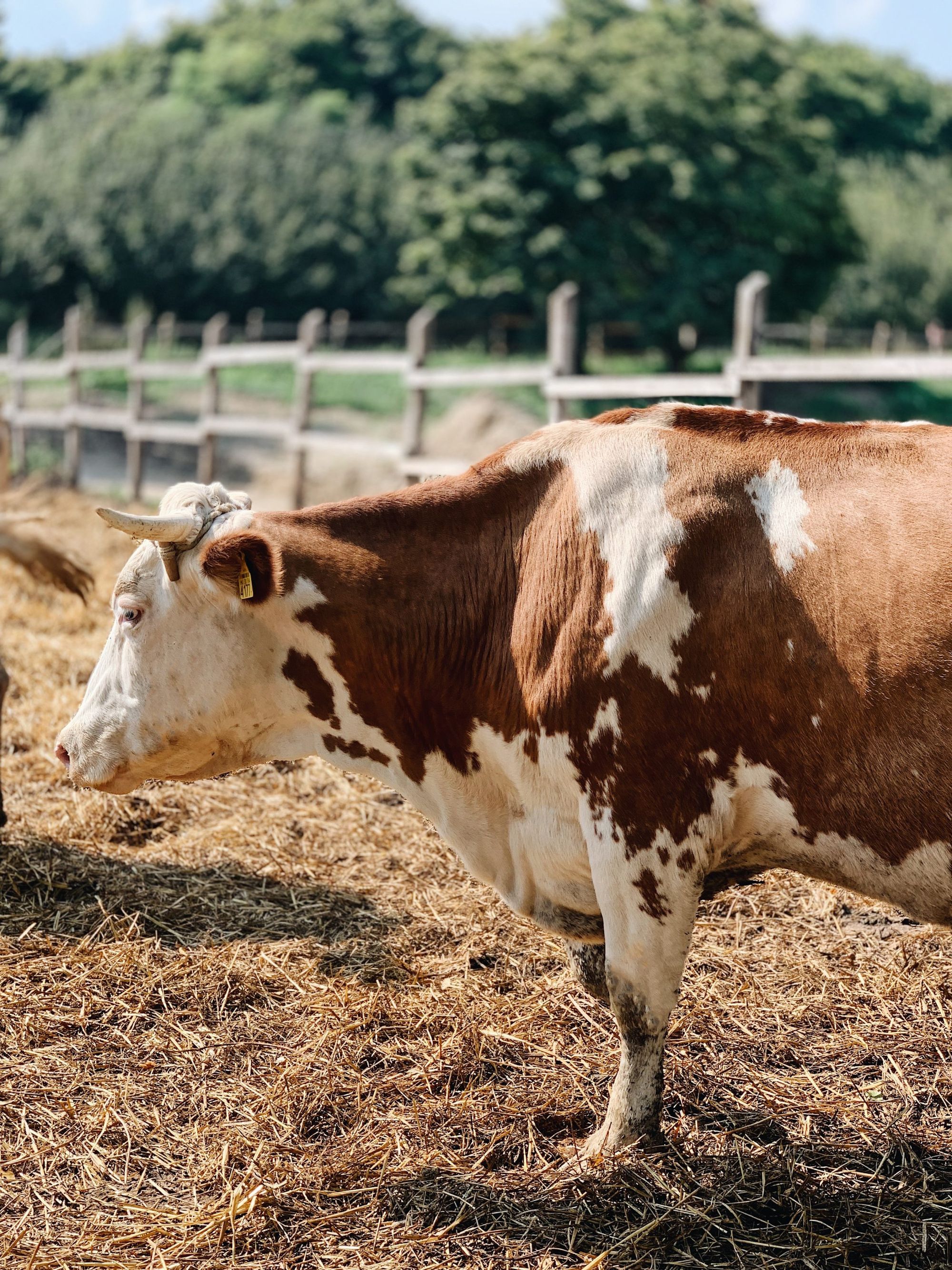
How many animals are currently living on the farm? You have recently completed a significant animal welfare development. How does this affect your livestock?
We’ve grown quite a lot in the last few years regarding animals. We are now working with a herd of 60 animals. We have Hungarian Simmental cattle, which have a much higher fat content and better quality milk than a Holstein (Holstein-Friesian is the most common breed of cattle in the dairy industry—the Ed.). Proper feeding can further nuance the composition of the milk. The high-fat content is essential for ripened cheeses, providing the structure and the delicate mature flavor of the cheese. Therefore, in our case, the quantity is outweighed by the quality. We wanted the current one to come from our own livestock. This means that instead of constantly buying in, we grew from our own reproduction. We bought cows for the first couple of years, then calves born from our studs came in when they reached their fertile period. Two years ago, we set up our animal welfare development to keep our cattle as ideal as possible, but as free as possible.
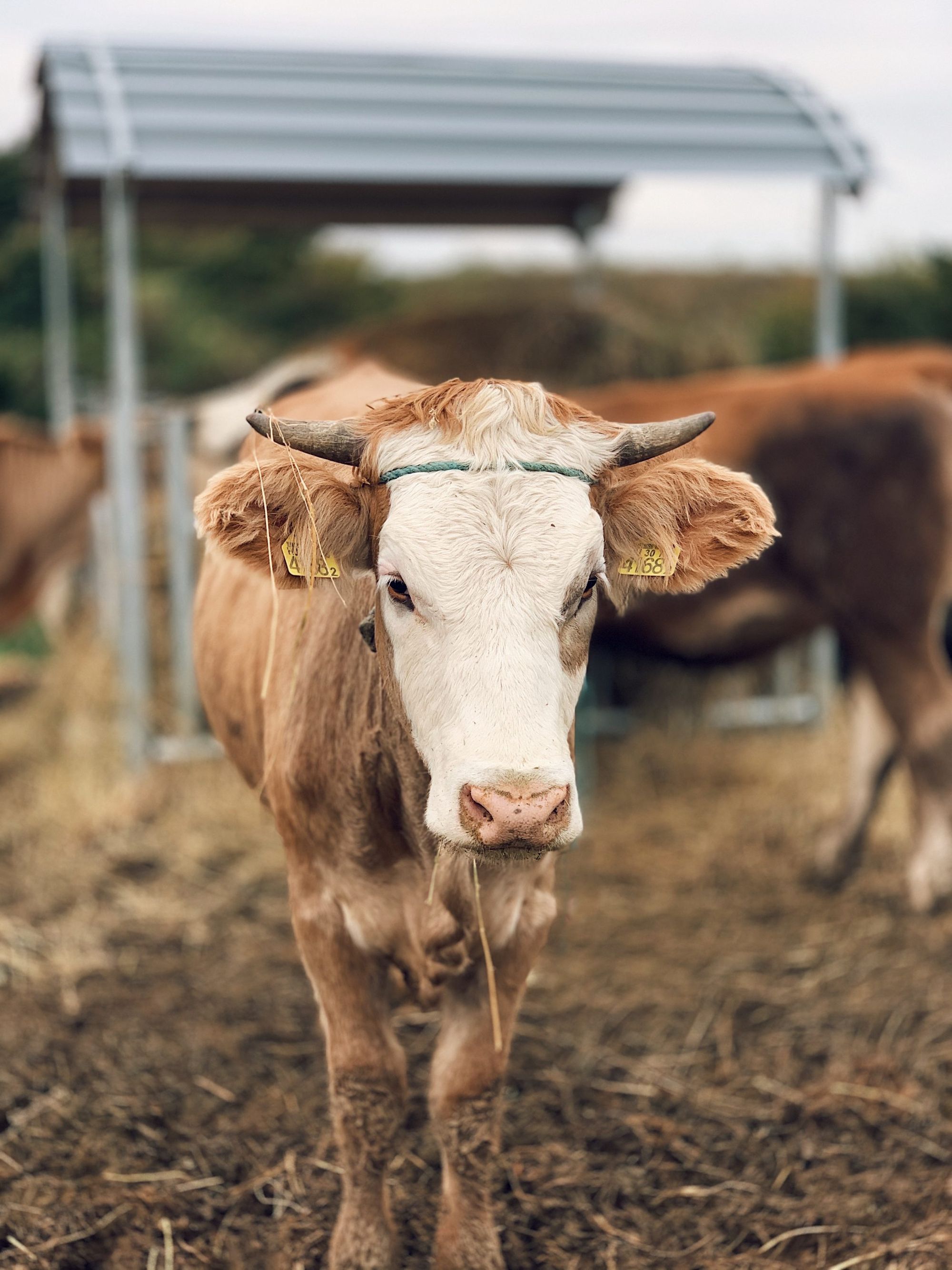
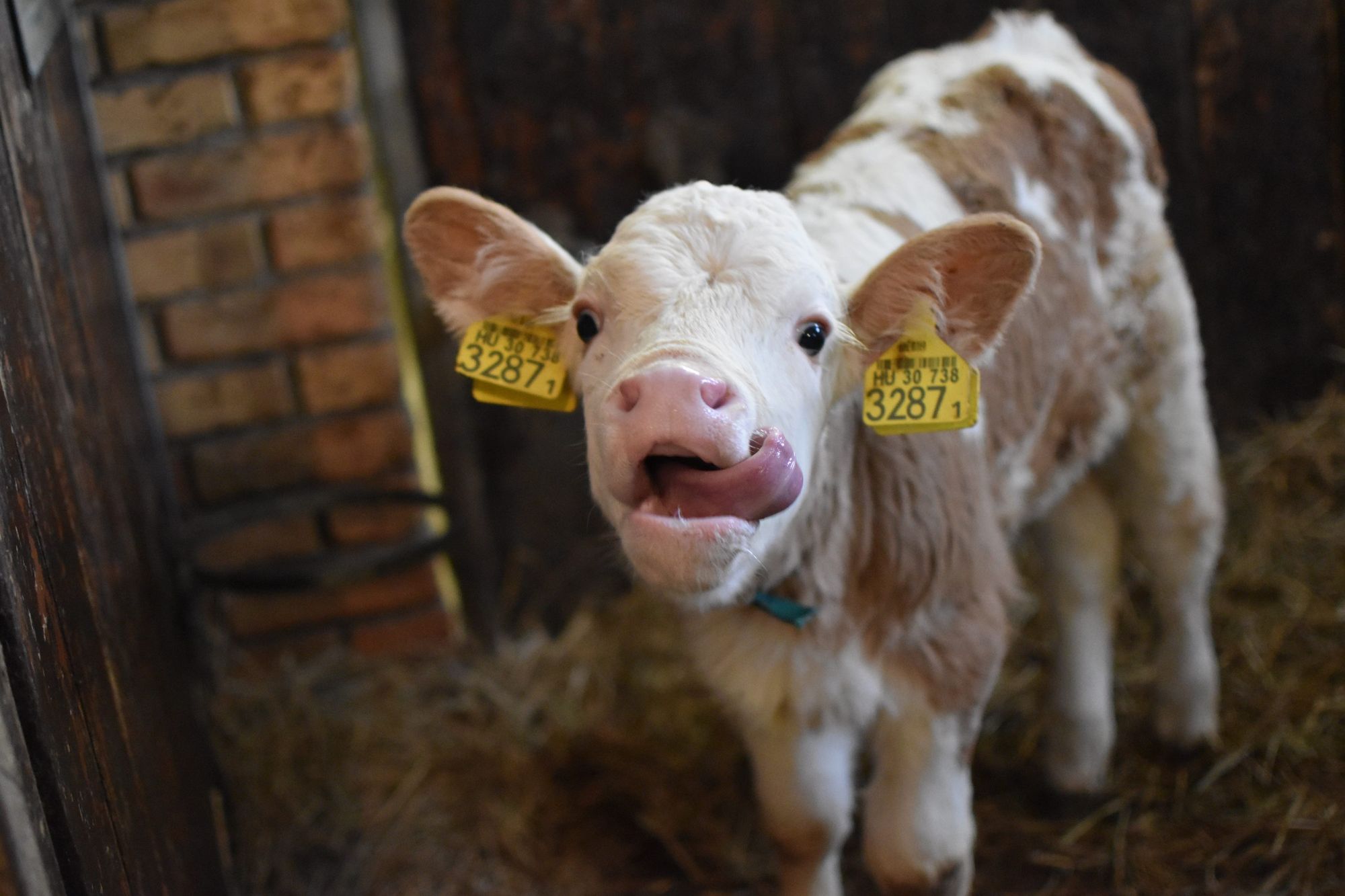
Has being a small farmer changed your daily life, your lifestyle?
Beyond rural life, we actually run a business, so not every day starts with a bird chirping. Our individual tasks are no different from those of other companies. Everyone in the family has a diverse range of responsibilities, not all focused on one particular area. I think that’s the key to being able to see work in a much more creative way, so that the individual tasks don’t zap your energy or take away your motivation.
On top of the business, you are a full-time mum of a little girl. How has this affected your relationship with the farm?
From the moment you become a parent, it is much harder to accept the fact that you own a business. At first, I thought everything would be the same after my daughter Janka was born. But I’m also very perfectionist when it comes to motherhood. So besides that, almost all my thoughts revolve around her. Entrepreneurship came in second. We get all the help we need from our family, but some days still require a lot of creativity and logistics. Which will double as we have our next baby due in May. We live on the estate, which is an extremely ideal setting for a toddler. This is what she gets used to, being around animals, like going to the zoo every day. For this reason, a morning visit in the city when I do business tasks might be more interesting for her.
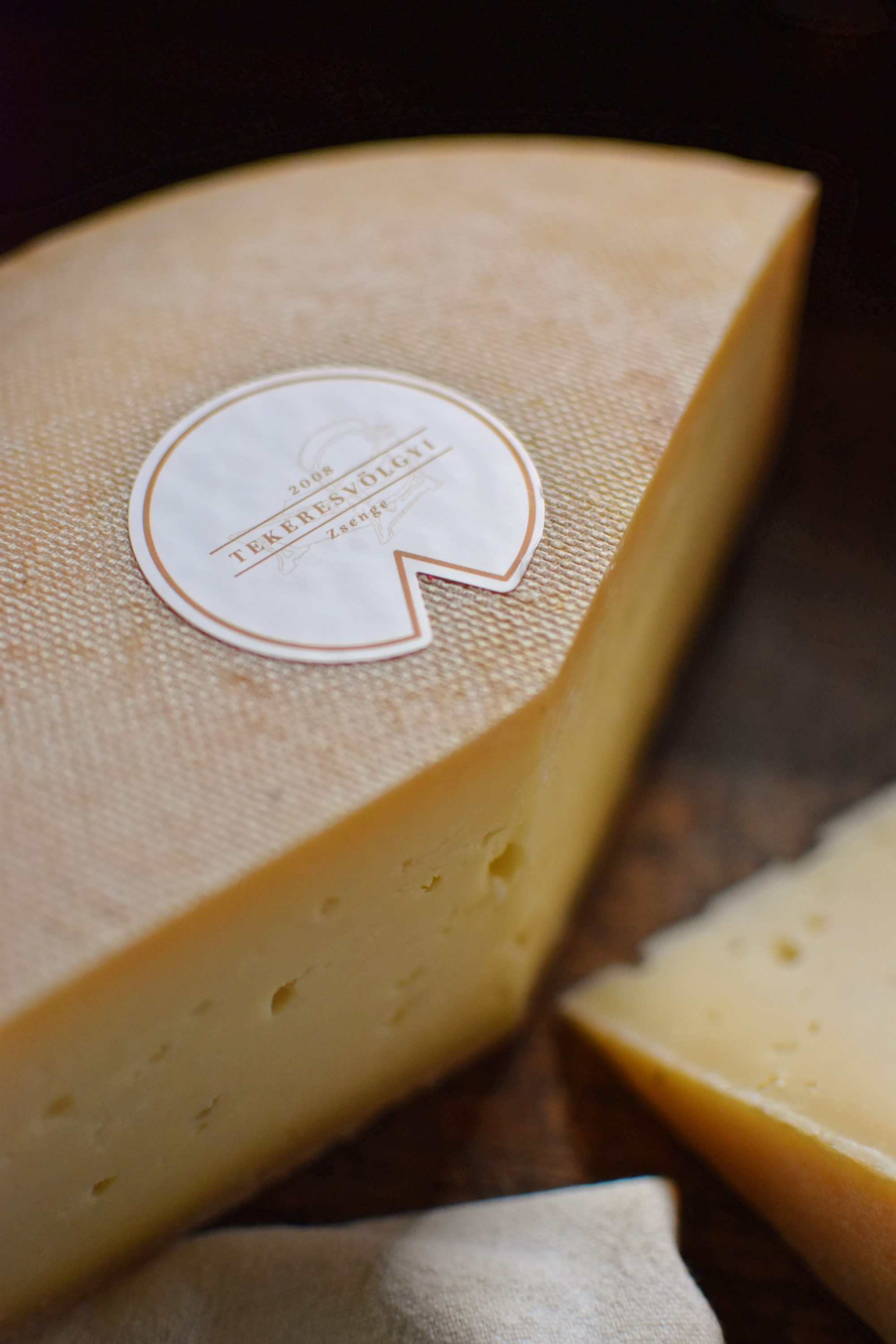
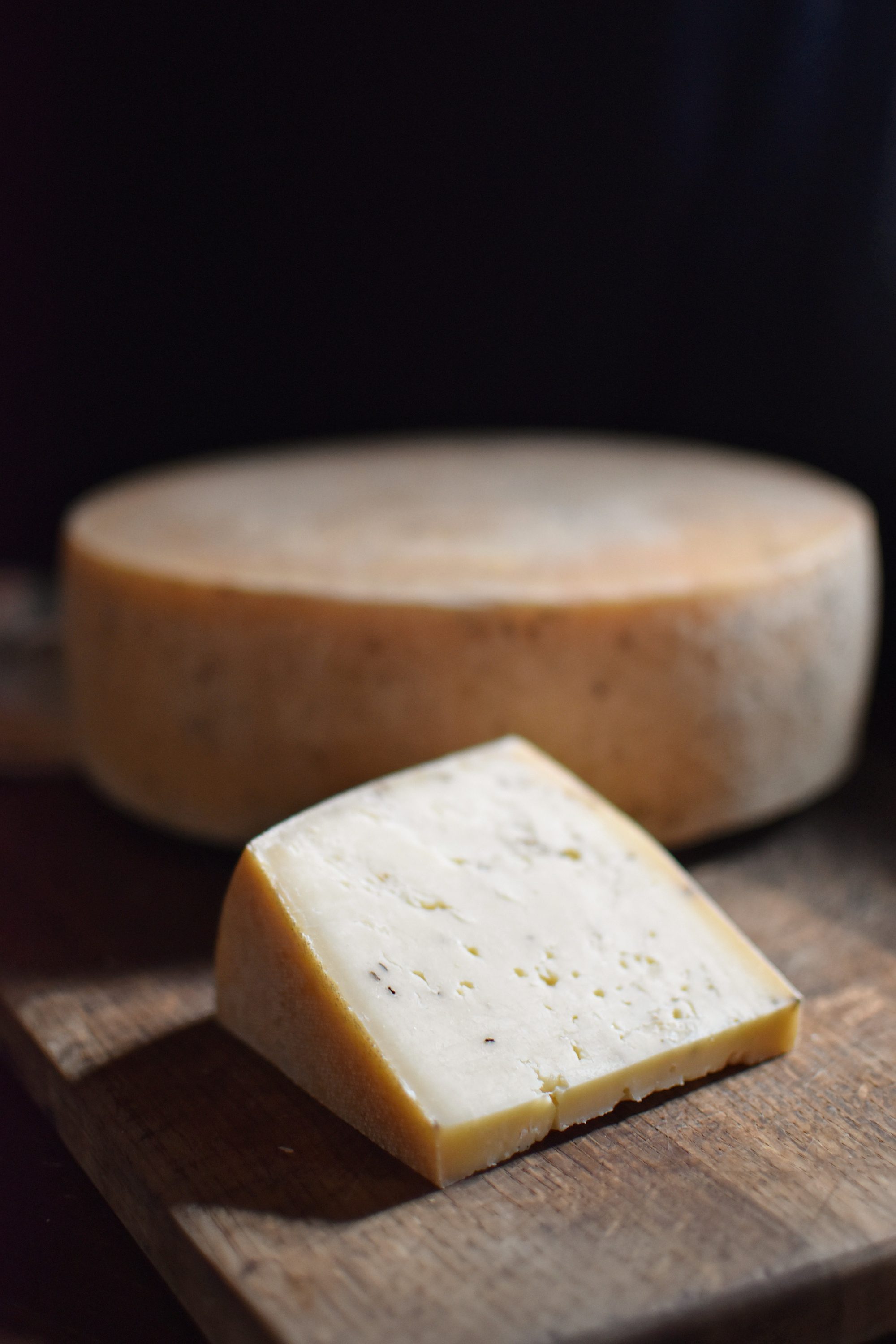
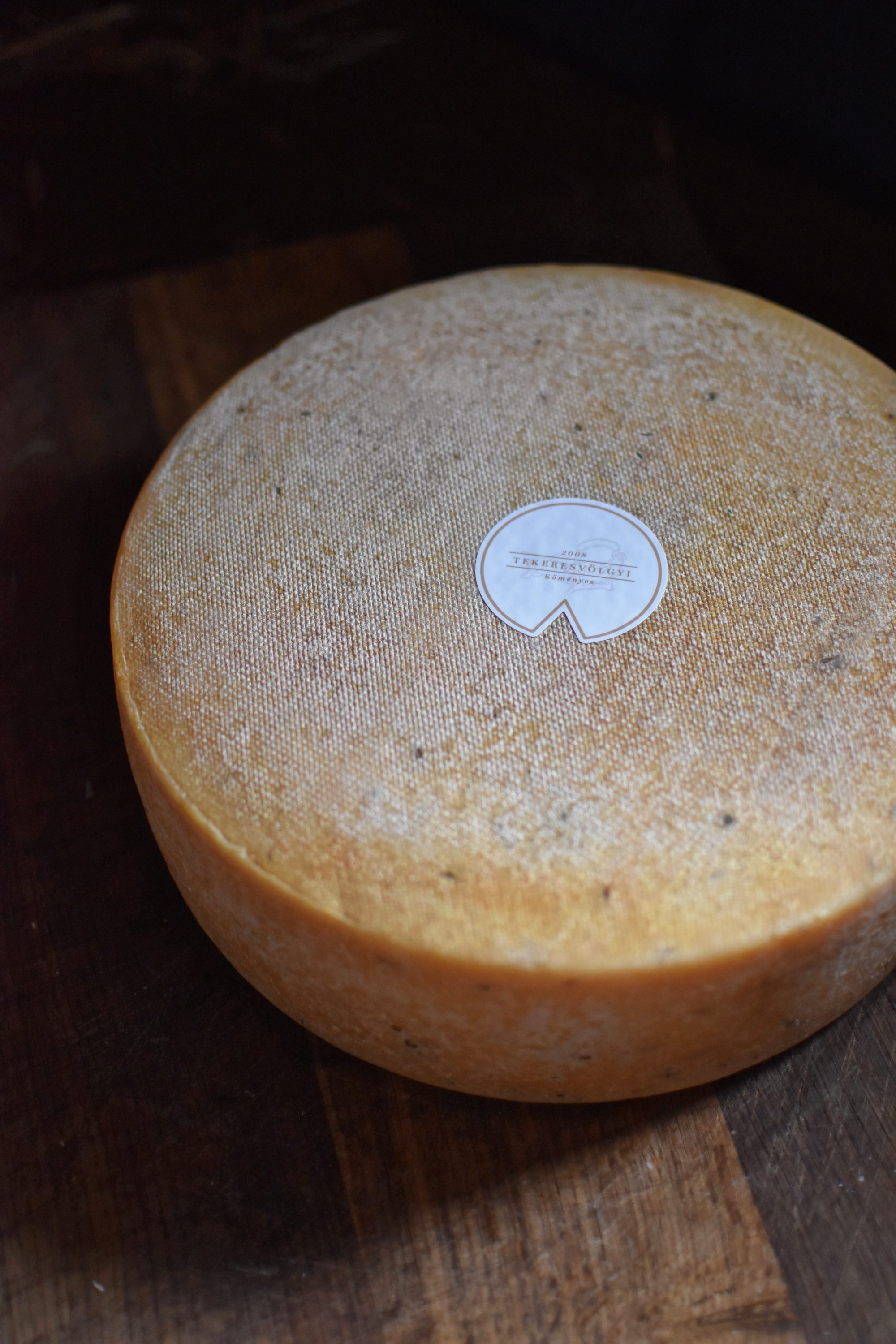
You have a degree in viticulture and enology. Yet cheeses play the leading role in your life instead of wine. Your partner, Tomi Hernyák, is a winemaker (Hernyák Birtok Etyek—the Ed.) with whom you both have a solid connection to gastronomy. How do you inspire each other professionally and how do you get “two pipers into one tavern”?
We chat a lot about work, which is often a type of recreation for us. Mostly we try to influence each other as objective observers. We understand when one of us has a problem or a plan within the farm. Yet we can look at each other’s family, property, business from a new perspective. We also try to deal with criticism in this way. It is difficult for a complete outsider to understand similar family businesses, so it’s a good feeling when the other person has similar problems or just understands what we are talking about.
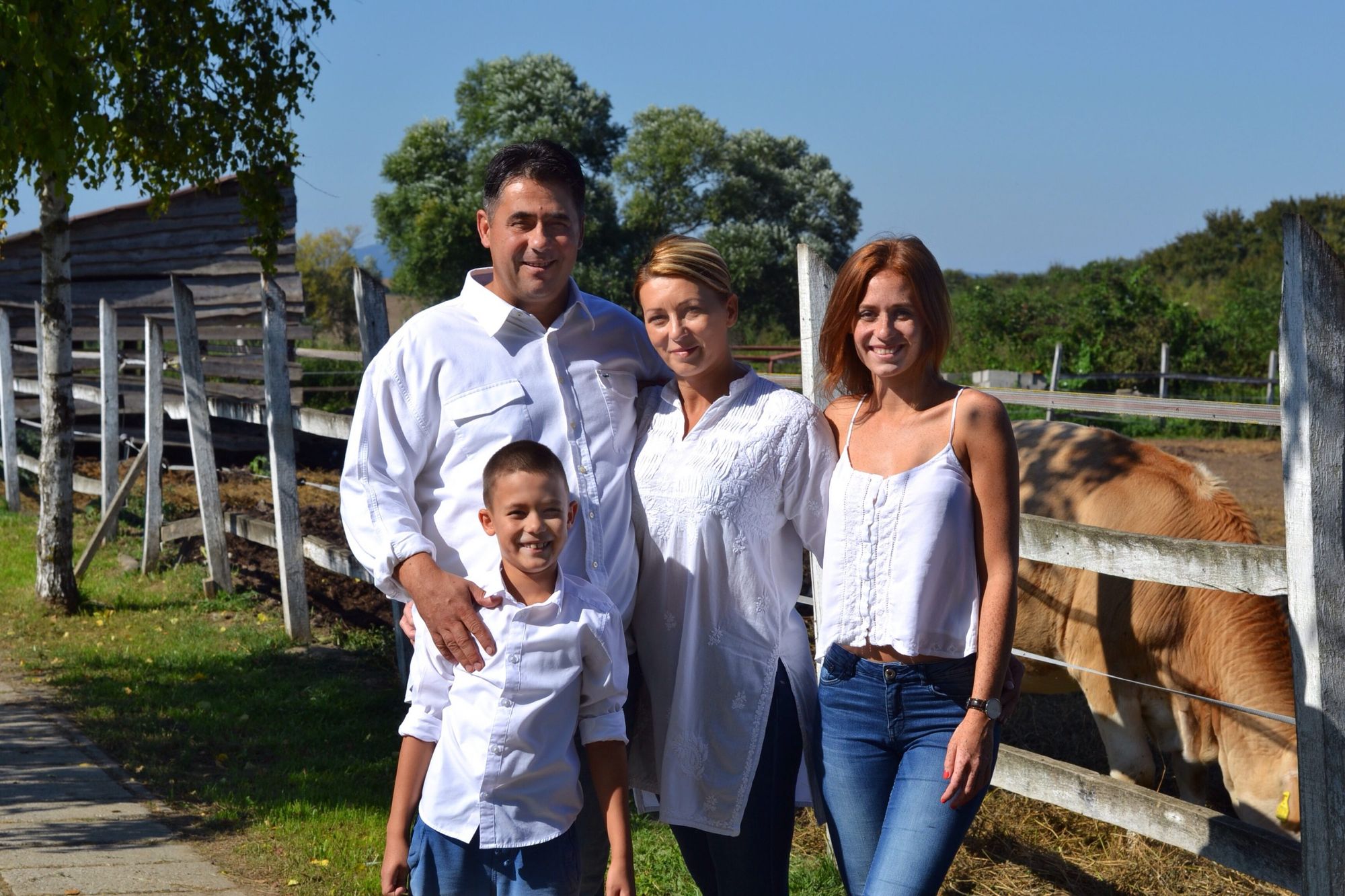
What are your plans for the future?
We have reached a crossroads where we have to decide whether we want to grow in volume or focus on being as complex as possible at the current scale.
This is the question that the Kovács family faces at the moment, whose products are in great demand. With the amount of milk that can be processed and the products, they make the surrounding area can be covered. Their cheese and dairy products can be found in restaurants, delicatessens and wineries in the Balaton Uplands and on the south shore. Zsófi and her family believe that being a local producer can really work on the spot through personal, direct care.
Photos: Tekeresvölgyi Családi Birtok, Béla Bánkuti
Tekeresvölgyi Családi Birtok | Web | Facebook | Instagram
Zsófi Kovács | Instagram
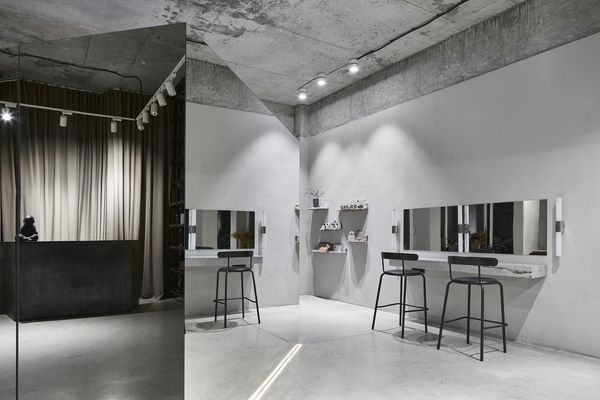
Rethought beauty salon
